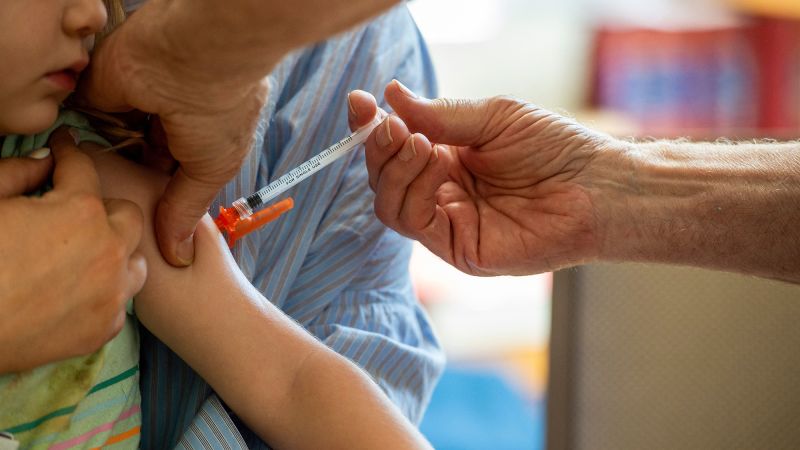The recent adjustments to the immunization schedules for children issued by the U.S. Centers for Disease Control and Prevention (CDC) have sparked significant debate and confusion among healthcare professionals, parents, and epidemiology experts. Just days before the announcement, U.S. Health and Human Services Secretary Robert F. Kennedy Jr. declared that Covid-19 vaccines would be removed from the recommended immunization list for healthy children and pregnant women. This sudden decision, conveyed in a brief social media announcement, has raised many questions regarding the implications for pediatric vaccinations and public health at large.
Under the updated guidelines, children seeking Covid-19 vaccinations will need to engage in what is referred to as “shared decision-making” with their healthcare providers. This process allows parents to discuss the pros and cons of vaccination tailored to their child’s health and lifestyle with a qualified medical professional. However, the guidance for pregnant women appears to be less clear; sections of the immunization schedule related to this group have been intentionally shaded gray, indicating a lack of concrete recommendations for Covid-19 vaccinations.
These latest changes follow Secretary Kennedy’s abrupt declaration and have led to a flurry of confusion as stakeholders work to understand the new terminology and its implications. Vaccine experts have voiced concerns that the mixed messages emerging from the Department of Health and Human Services (HHS) hinder the clarity essential for public health communications. For those in favor of vaccines, there is a fear that this revision may deter access to the necessary vaccinations.
The HHS has asserted that, despite being removed from the CDC’s official list of recommended vaccinations, Covid-19 vaccines technically remain available under the shared decision-making category for children. For adults, Covid-19 vaccinations continue to be listed, but recommendations specifically for pregnant individuals have been omitted. Some experts have pointed out that this signals a misunderstanding of how vaccination schedules function, further complicating the communication and understanding of the new rules.
On the updated Child and Adolescent Immunization Schedule, the Covid-19 vaccines are no longer classified under “recommended.” Instead, they are categorized under “recommended vaccinations based on shared clinical decision-making.” This means that children can receive the vaccine if they and their healthcare provider determine it is the right choice, echoing a shift towards patient autonomy and informed consent — an intention underscored by Kennedy in his statements.
The unexpected revision has different ramifications for the healthcare system and families. While the system aims to foster doctor-patient relationships and ensures insurance coverage under this new category, it can also introduce barriers to vaccination. Immunization experts note that shared clinical decision-making has historically made it more challenging to get individuals, particularly children, vaccinated. Dr. Michelle Fiscus, a pediatrician, emphasized this concern, suggesting that the decision to consult with healthcare providers can prolong the vaccination process.
The American Academy of Pediatrics expressed cautious relief at the updates, praising the preservation of insurance coverage for the vaccines. However, concerns linger regarding the coherence of communication from HHS and CDC officials and the overarching implications for the vaccination framework in the U.S. Current studies still demonstrate that children can become severely ill from Covid-19, underscoring the importance of maintaining access to vaccines — especially for younger populations, who historically have faced significant hospitalization rates due to the virus.
For pregnant individuals, however, the situation is murkier. There is a current lack of guidance regarding Covid-19 vaccinations during pregnancy, despite established evidence indicating that pregnant women face increased risks from severe Covid-19 infections. Regulatory bodies, including the U.S. Food and Drug Administration (FDA), have indicated that vaccination is vital for this group. Furthermore, the Society for Maternal-Fetal Medicine continues to advocate for vaccination during pregnancy as a critical measure to mitigate potential complications for both mother and child.
Overall, the latest updates from the CDC and HHS demonstrate the complex interplays between public health policy, vaccine access, and individual healthcare provider recommendations. While the new immunization guidelines seek to create a more personalized approach to vaccinations, the lack of cohesive communication may result in confusion and fewer immunizations, particularly among vulnerable populations. The upcoming discussions around Covid-19 vaccines will need to bridge these gaps to maintain public trust and ensure that families have access to critical vaccinations amid evolving public health challenges.












